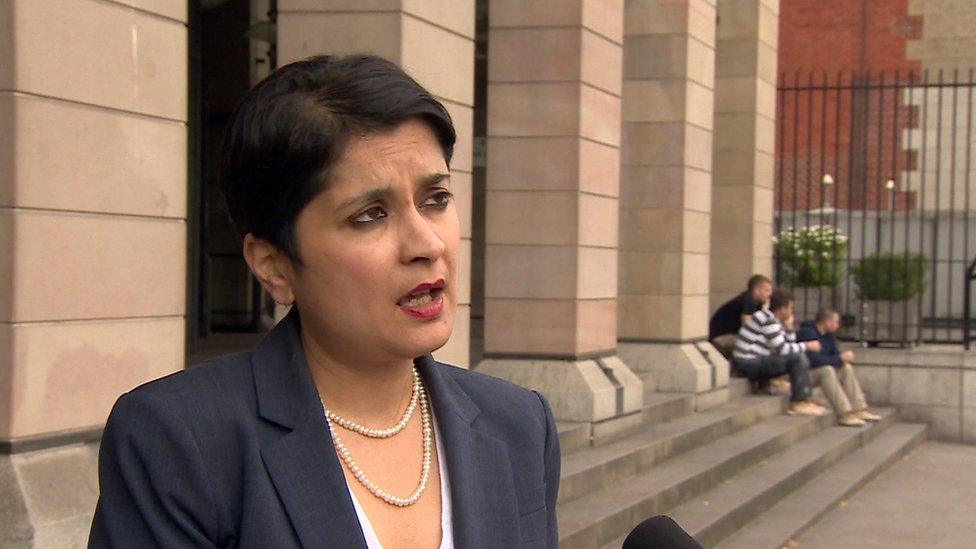Labour's Lady Royall: No life bans over anti-Semitism
- Published
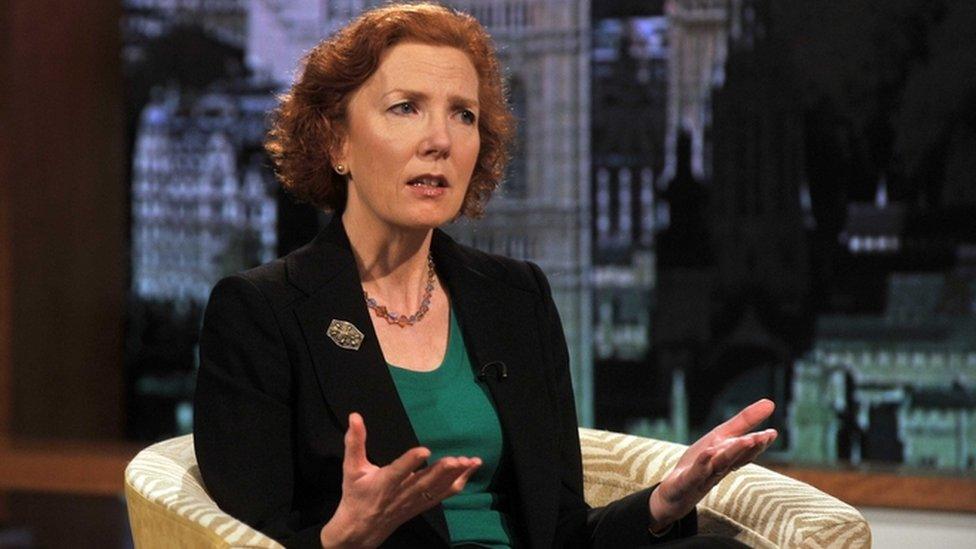
Baroness Royall, who led the review, said people may "change their views"
People thrown out of the Labour Party for anti-Semitic views should not be banned for life, the author of a report into its university organisations says.
Baroness Royall said people may "change their views" and should be able to apply to rejoin the party.
Her inquiry into anti-Semitism claims at Oxford University Labour Club found no evidence of institutional racism.
But it said "difficulties" had to be addressed to ensure a "safe space" for all Labour students.
A wider inquiry into anti-Semitism and other forms of racism, led by civil rights campaigner Shami Chakrabarti, is under way.
A Labour spokeswoman said the party's ruling body, the National Executive Committee (NEC) accepted the report, external but shadow chancellor John McDonnell said he disagreed with Baroness Royall, saying the party had to be "extremely firm" on any kind of racism.
He told BBC Newsnight: "I don't want these people to be members of our party, so we have a difference of view on that."
Asked if Ken Livingstone could ever be a member of the party again, following comments he made regarding Hitler and Zionism, Mr McDonnell insisted he would not prejudge the outcome of the wider inquiry.
He added that Baroness Royall's report would now go before the NEC and would influence future policies.
'Safe space'
Labour has been beset by growing claims of anti-Semitism within its ranks in recent months, and critics have accused the leadership of not doing enough to combat the problem.
Leader Jeremy Corbyn has said the party has been "resolute" in tackling anti-Semitism and that he has taken "decisive action" over any allegations since he became leader.
Baroness Royall, whose review began before Ms Chakrabarti's was launched, said her recommendations should apply to Labour as a whole in its response to any instances of anti-Semitism.
On banning members, she said: "It is not recommended that where a person is excluded from membership for anti-Semitism this should automatically be a life ban.
"I recognise that people may change their views and that where that is demonstrable a person may be allowed to seek NEC approval for any future application to join the Labour Party."
Her investigation was launched after Alex Chalmers resigned as co-chairman of Oxford University's Labour Club (OULC) after it voted to support Israel Apartheid Week. He said many members had "some kind of problem with Jews".
In a statement the club said at the time: "We are horrified at and whole-heartedly condemn anti-Semitic behaviour in all its forms."
Labour MP John Mann said in a tweet that the report showed there "definitely is" a problem with anti-Semitism in the Labour Party.
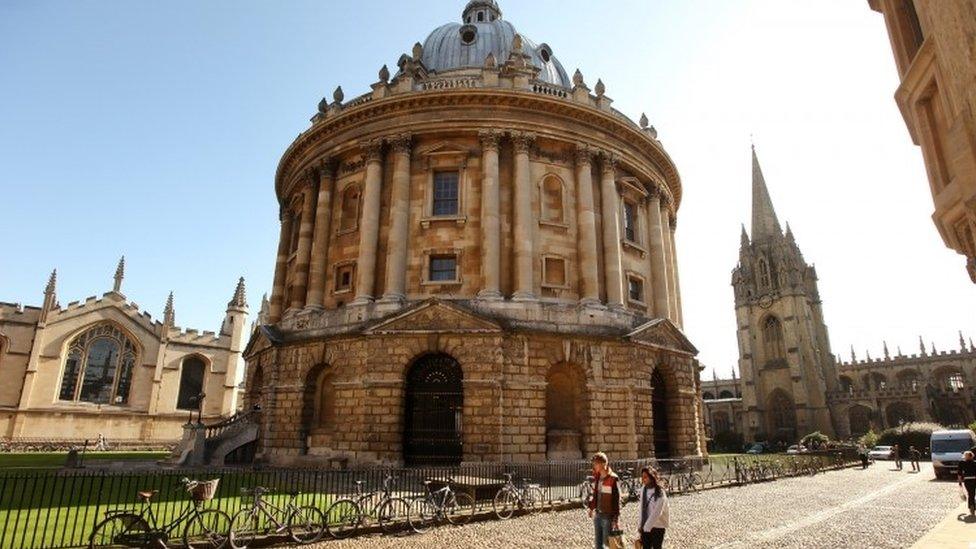
Lady Royall said she did not believe there was institutional racism at Oxford University Labour Club
Setting out her conclusion, Baroness Royall said: "I do not believe that there is institutional racism within OULC.
"Difficulties, however, face OULC which must be addressed to ensure a safe space for all Labour students to debate and campaign around the great ideas of our movement."
She proposed:
Labour and the NEC should provide training to help people in the party identify and deal appropriately with any incidents of anti-Semitism
the national complaints procedure is properly resourced so it can "deal effectively" with complaints
the party doesn't have a "statute of limitations" on anti-Semitic behaviour
Ms Chakrabarti's inquiry, set up after MP Naz Shah and ex-London mayor Ken Livingstone were suspended amid anti-Semitism claims, will report by the end of June.
Lady Royall said it should consider whether Labour should change its rules to allow swifter action to deal with anti-Semitism, to empower the NEC with an independent panel to exclude members where there is evidence of anti-Semitism and to introduce more rigorous vetting procedures for candidates.
- Published30 April 2016
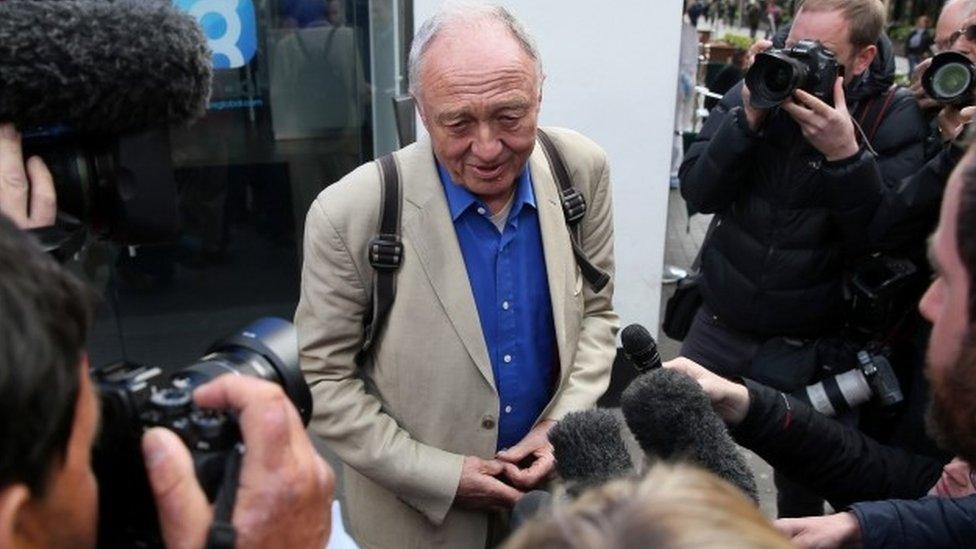
- Published13 March 2016
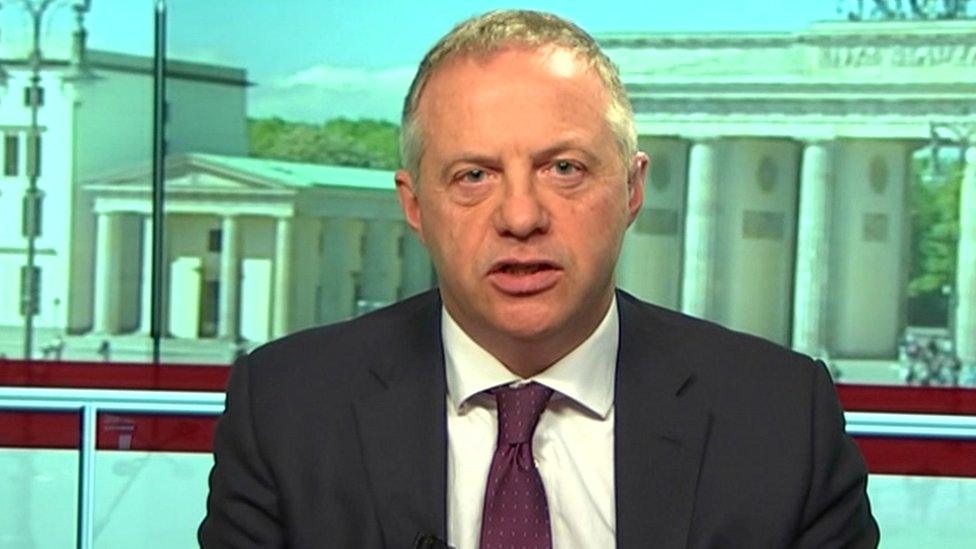
- Published17 February 2016
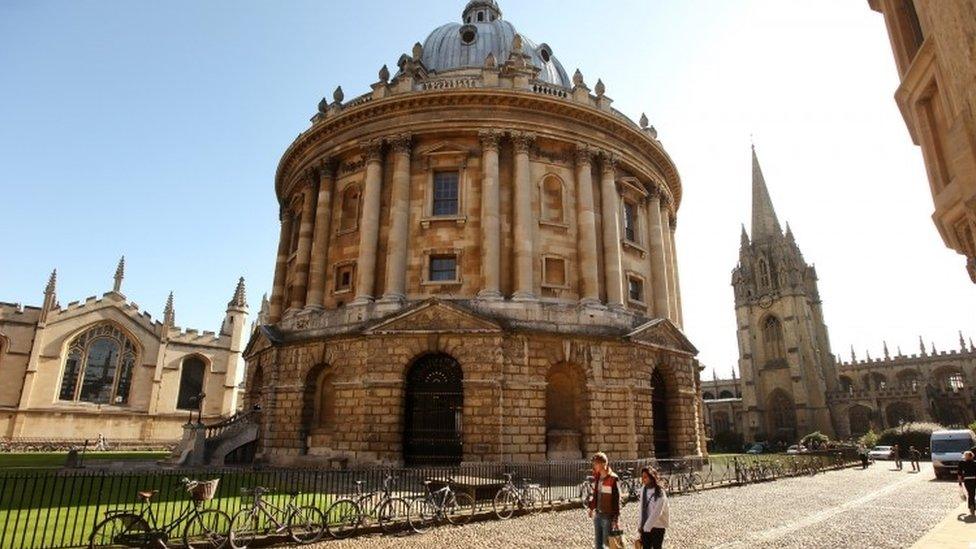
- Published29 April 2016

- Published16 May 2016
